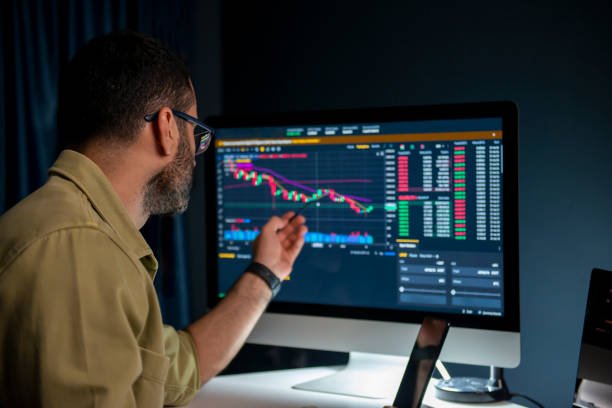The meteoric rise of online trading platforms has helped to upend a traditionally conservative industry and to introduce millions of ordinary individuals across the world to the dynamic world of the financial markets.
In the space of a few years, the global online trading platform market has experienced serious growth. According to a recent report, the industry is expected to reach $18.4bn by 2031, which is well up from $8.9bn in 2021.
The industry experienced much of this growth over the course of the Covid-19 pandemic, when millions across the world turned to online trading as a way to take charge of and invest in their financial future.
Unfortunately, while the numbers of individuals trading from the comfort of their home has increased, there is still a significant skills gap present among many of these novice traders. And rather than making important investment decisions based on deep knowledge of the financial markets, many of these rookies are compelled as much by FOMO – the “fear of missing out” – as by experience. For this reason, industry commentators have cautioned against this trend.
This doesn’t have to be the case, however. While it is probably unlikely that you will ever be able to compete with the legions of finance degree-backed professional traders who make the markets move, with some training in trading fundamentals, you can significantly increase the likelihood of long-term investment success.
With that said, let’s take a look at some of the things you can do to increase your chances of trading success!
Gain some knowledge of the fundamentals
One of the first things you should do is to gain a basic grasp of how the economy works, along with some core economic principles.
Although this knowledge might seem a little esoteric, you would be amazed at how understanding things like what is GDP or what inflation is can help your trading strategy. Knowing what the economy is doing will help you to plot your next investments and to get a sense of what your risk exposure needs to be.
Pick an asset class
Another thing you can do to increase your likelihood of trading success is to choose an asset class to focus on.
One of the great things about online trading platforms these days is that they provide you with access to a massive range of financial instruments across a wide variety of asset classes. However, it is unlikely that you will ever truly be able to master trading more than one of them, or to keep on top of the market news across multiple asset classes.
With that said, we recommend sticking to one or two asset classes and getting to know them intimately. This will help to focus your learning and development, and it will be much easier to keep up with all the latest news.
Have a risk management strategy
One of the most important things any successful trader can do is to develop a risk management strategy that allows them to take advantage of trading opportunities without exposing their portfolio to unnecessary risk.
To develop a risk management strategy, you should always start with an assessment of how much you are willing to lose. This will set the foundation of your risk tolerance, which in turn will have a significant effect on the types of assets you invest in and your overall strategy.
Always have an exit strategy
Closely related to the need to have a risk management strategy in place is knowing when to stop trading.
This wisdom applies equally to the moments when your trading strategies have proved unsuccessful as it does to when you are successful. Never overstretch yourself when you feel like you are winning, and never try to dig yourself out of a hole when the markets move against you.
Try to stay relatively unemotional and business-like, and always have a plan for how you will close out your trade.
Always have a beginner’s mindset
Another important tip to ensure long-term trading success is to always approach trading and investment as a novice. By this, we simply mean that you should always be willing to learn – no matter how much of an expert you think you are!
Take opportunities to learn from your peers wherever possible and try to expose yourself to as many sources of information as you can. After all, you never know who you may meet or what you will learn when you aren’t actively looking. This advice applies equally well to Wall Street and beyond!




